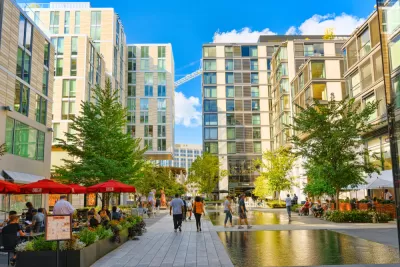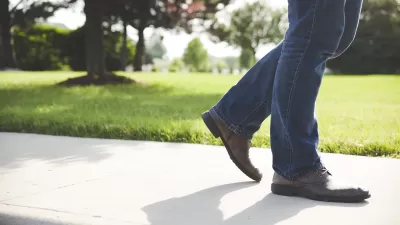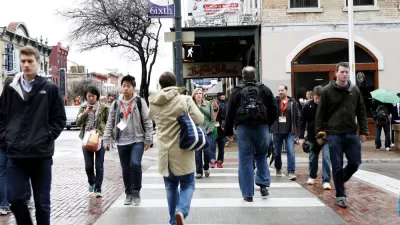Washington, D.C. recently released its first new guidelines for transportation review of new developments since 2012.

"In June, the D.C. Department of Transportation published new guidelines for reviewing the transportation impacts of major real estate developments," according to an article by D. Taylor Reich.
"These new guidelines may be the country’s most advanced in their attention to pedestrian infrastructure, but even they could be improved if they treated pedestrians with the same attentive, technical rigor that they use to treat traffic."
According to Reich, the effects of new developments on mobility, walkability, equity, and economic development have been neglected for much of D.C.’s history they were not considered during the development approval process. The new guidelines, however, elevate pedestrian safety and walkability during the evaluation of transportation in connection to new developments.
Reich lists more specific as follows, taken directly from the article:
- Surveys of current and planned pedestrian infrastructure, like the one described for the project at 301-331 N St. NE, are now required for all CTRs – and are required to go into even greater detail.
- An inventory of street trees, which contribute in many ways to the pedestrian realm, is now required within a three-block radius of the project.
- An analysis of vehicle crashes has been replaced with an analysis of pedestrian safety.
- A count of pedestrians and a count of bicycles are now required at every intersection where a count of cars is required.
The detailed, lengthy article also includes recommendations for even better outcomes in terms of walkability.
FULL STORY: Transportation is more than traffic: Measuring the impact of development on walkability

Planetizen Federal Action Tracker
A weekly monitor of how Trump’s orders and actions are impacting planners and planning in America.

San Francisco's School District Spent $105M To Build Affordable Housing for Teachers — And That's Just the Beginning
SFUSD joins a growing list of school districts using their land holdings to address housing affordability challenges faced by their own employees.

The Tiny, Adorable $7,000 Car Turning Japan Onto EVs
The single seat Mibot charges from a regular plug as quickly as an iPad, and is about half the price of an average EV.

Trump Approves Futuristic Automated Texas-Mexico Cargo Corridor
The project could remove tens of thousands of commercial trucks from roadways.

Austin's First Single Stair Apartment Building is Officially Underway
Eliminating the requirement for two staircases in multi-story residential buildings lets developers use smaller lots and more flexible designs to create denser housing.

Atlanta Bus System Redesign Will Nearly Triple Access
MARTA's Next Gen Bus Network will retool over 100 bus routes, expand frequent service.
Urban Design for Planners 1: Software Tools
This six-course series explores essential urban design concepts using open source software and equips planners with the tools they need to participate fully in the urban design process.
Planning for Universal Design
Learn the tools for implementing Universal Design in planning regulations.
Smith Gee Studio
City of Charlotte
City of Camden Redevelopment Agency
City of Astoria
Transportation Research & Education Center (TREC) at Portland State University
City of Camden Redevelopment Agency
Municipality of Princeton (NJ)




























